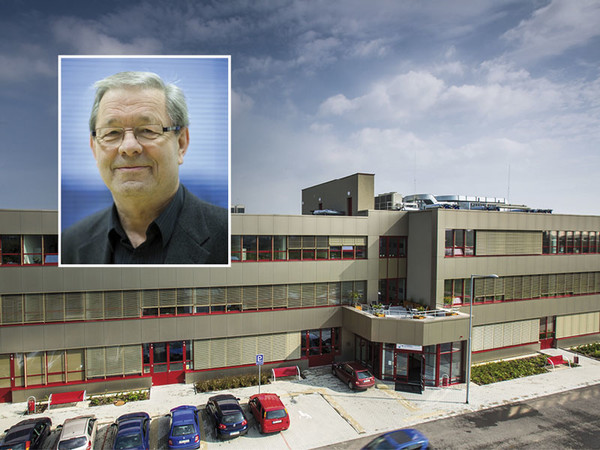The Regional Centre of Advanced Technologies and Materials (RCPTM) at Palacký University enters the new year with three representatives in the prestigious list of Highly Cited Researchers 2016. The chemist Pavel Hobza has been featured for the third time successively; two other RCPTM employees, foreign experts Patrik Schmuki and Rajender S. Varma, were also listed. The Czech Republic has altogether five representatives – one more than in the previous year – in the list made by Clarivate Analytics InCites™ (formerly Thomson Reuters).
“It is a demonstration of a huge scientific force, once we realise that a young and relatively small institute has three scientists in such a prestigious list, whereas other big scientific institutes and universities with long traditions are not represented at all. Citations are undoubtedly an important, however not the only, indicator of excellence in science,” said Prof Hobza, an expert in computational and theoretical chemistry. He works at the Institute of Organic Chemistry and Biochemistry, the Academy of Sciences of the Czech Republic, as well as at the Faculty of Science, Palacký University Olomouc, and the Olomouc-based RCPTM. He currently focuses on in silico drug design; however his discovery of improper hydrogen bonding is his most renowned accomplishment in the scientific community. Hobza received the most important Czech award for science, Czech Mind, in 2008, and recently he was awarded the Schrödinger Medal by the World Association of Theoretical and Computational Chemists (WATOC), only the second Czech to do so. According to the database of the Web of Science, he is the author of more than 500 works, with over 32,000 citations; h-index 95.
Radek Zbořil, RCPTM Director, is pleased by the fact that three representatives of the Centre placed in the Highly Cited Researchers list. “This proves the position of RCPTM as the most efficient institute among those created in Czechia within the Operational Programme “Research and Development for Innovation”, and one of the most effective scientific institutes in the country in general,” said Prof Zbořil.
The 2016 list contains the names of roughly 3 000 elite researchers on the basis of analysis of highly cited works from the Web of Science (ESI) in the years 2004–2014. Researchers are divided into 21 areas in the natural as well as social sciences. Professor Schmuki, focussing on electrochemistry in RCPTM, has also repeatedly placed in the list. At the same, he is employed at the Friedrich-Alexander University in Erlangen-Nürnberg, Germany.
RCPTM is also associated with an expert on nanotechnologies for environmental protection, Rajender S. Varma, whose other workplace is The United States Environmental Protection Agency (EPA). “Of course I enjoy being included in the prestigious list of most cited researchers, along with many renowned researchers and Nobel Prize laureates, yet I also feel humble. At the same time I am honoured to be associated with the Regional Centre of Advanced Technologies and Materials. The vision of its leaders to develop a top-notch world-class research centre with scientists from various disciplines and countries is very close to my heart. The Centre has made a very long journey in a short time, and I am positive that before long, it will be a model for everyone,” claims Varma.
The elite list includes, as in the previous year, Petr Widimský from Charles University (clinical medicine), Petr Pyšek (environmental protection/ecology) from the Institute of Botany at the Academy of Sciences of the Czech Republic, and his late colleague Vojtěch Jarošík. The same workplace and discipline is represented by Jan Pergl. Neighbouring Austria is represented by 20 scientists on the list, while Germany has 200 representatives. Six scientists from Poland, two from Slovakia, and one from Hungary were listed among the Highly Cited Researchers 2016.
